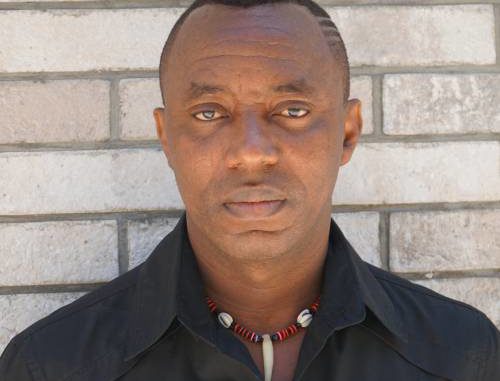
As the 2019 presidential election approaches, candidates, especially those outside the establishment should read Quintus Tullius Cicero’s “How to Win an Election.”
Omoyele Sowore, founder of the eminently controversial news website, Sahara Reporters is the newest and youngest entrant in the 2019 presidential election. In February, he announced his intention to stand as a candidate for the office of president in 2019. But the political party upon whose platform he will campaign and seek votes remains a taciturn humour—a mystery of sort (The Nigerian Constitution does not allow for independent candidacy).
Sowore’s campaign for president appeals more to the youth populace. At 47, however, Sowore is arguably not the best poster face for a youth president that most Nigerian youth solicits. Nevertheless, the fact that he has taken on the establishment with such a dazzling zeal alone is momentous. So, even if he ends up roundly defeated at the polls (which is an unambiguous possibility), it will be a victory nonetheless. Lose or win, it will be a pivotal milestone in the agitation of the youth to be recognized and make a tangible in-road into the highly guarded elite political circle at the top.
More than 60% of Nigeria’s population is made up of young people. Noteworthy, many of them, compared to their counterparts anywhere in the world are profoundly savvy, thoroughly educated, and intrepid. But despite their high qualifications, youths are increasingly precluded from political leadership at the highest levels, no thanks to certain tyrannical constitutional clauses and artificial socio-political barriers put before them.
This is the most reason Sowore’s presidential ambition on several fronts stands as a new paradigm. To some, it is seen as the turn of a gradual end to the dominance by the inept and elderly political class, one needed to help herald a new order.
Nigerian youths are angry with the peculiarly incompetent and hopelessly corrupt ruling class. They are, therefore, hungry for a change–a worthy change. This is why Sowore’s declaration is a positive appeal to the youth. Many even see it as a general “youth project.”
My friend and rising scholar, Modiu Olaguro of the University of Lagos in an engaging essay, Grey as Hubris pleads for Nigerian youth to elect a youthful politician like Sowore for president. “The old put Nigeria on life support. They cannot possibly be in a position to revive her. The onus rests on young, sincere and conscious minds to devote as much energy they’ve put into religion and ethnicity to engage governance.” He argued. “We’ve got no urgent task on our hands than that. The future is here. We either take it, or it consumes us all.” He further wrote.
It is indisputable that Sowore is roundly qualified. He is outspoken and idealistic– requisite characteristics whose embodiment makes for a good president. In a fascinating article published in The Cable, Femi Afolabi, an austere journalist, feverishly argued the case for a Sowore Presidency. According to Afolabi, Sowore will be an outstanding president, especially in the fight against corruption considering his genuine fight against systemic corruption and bad governance as an activist and citizen journalist. “Those who no longer believe in President Buhari’s…are now calling on the dogged activist to run in 2019.” He urged Nigerians to start imagining Sowore as the occupant of Aso Villa.
As an activist, Sowore has consistently put his life at risk. He remains a loud voice in the demand for responsible and accountable governance. Bayo Oluwasanmi, a thoughtful columnist, regarded him as courage personified. “Unlike other armchair critics,” he wrote, “no one has given so much even at risk…in the forefront of a political and social revolution to reshape, recast and remake Nigeria.
Sowore will make a superb president. But it is one thing to be idealistic and outspoken, it is yet another to win a presidential election. It is awkward to point out the unavoidable: The fact is that Sowore lacks the finance, a tested and resilient platform, and no such thing as a broad reach, putting his chances on the low. In politics, these are critical resources. Presidential elections in Nigeria are intensely contested. Enormous financial resources and extensive alliances are needed to win an election. Sowore lacks all of these. It will be naïve, therefore, to analyze his chances in exaggerated terms.
It is discourteous, though, to dismiss his chances. Politics, after all, is fluid, and elections can be slippery. In an interview with Sahara Reporters, Sowore jauntily declared he will easily win at the polls. Some supporters are quick to point out that Sowore is the underdog who could swing a surprise.
For me, whether he loses or win, he is my star. And I’m going to vote and contribute to his campaign. I wish, therefore, that he grabs a copy of the eminent work of Cicero’s “How to Win an Election,” a how-to guide. In that book, Cicero advised his elder brother Marcus who was contesting for the office of Praetor to “Make sure you have the backing of your family and friends.” “Surround yourself with the right people.” “Call in all favors.” “Build a wide base of support.” “Promise everything to everybody.” “Communication skills are key.” “Don’t leave town.” “Know the weaknesses of your opponents — and exploit them.” “Flatter voters shamelessly.” “Give people hope.”
If Sowore can be guided by these erudite counsels, he too might win the election by “gaining more votes than any other candidate,” as Marcus Cicero did.
Miebara, an economist wrote from Kaduna.
He can be reached on miebararommel@gmail.com


d legislative house (both national & states) is d base of democracy. we need d youth to take over d legislative process and d assembly houses.